The Research Chefs Association strives to provide high quality content and events for the membership, and the annual conference and educational material have improved every year. One element I personally bought into was the Research Chefs Association certifications that they offer to both food scientists and research chefs to help them prove their experience and skills in culinology. Maybe it’s a pride thing, or maybe it’s a way for us to show the food manufacturing industry that we take ourselves and our craft seriously.
The word “culinology” was coined by RCA’s founding president Chef Winston Riley in the early days of the research chef career spinning off the ACF and becoming its own field. The blending of culinary arts and technology was where Chef Winston believed our specialty and differentiation was found. Over the years, the word has morphed into a blending of culinary and food science, but the value is that we research chefs and culinary scientists occupy a unique niche and bring a different expertise to a food company.
As a career crossover, it was important to me to find a way to educate myself appropriately in the new-to-me culinology field. I knew I loved it, but I wasn’t sure what information I was lacking. The RCA Certified Culinary Scientist and RCA Certified Research Chef offered an opportunity to align myself with a respected organization and to (hope to) prove my experience and knowledge in the field.
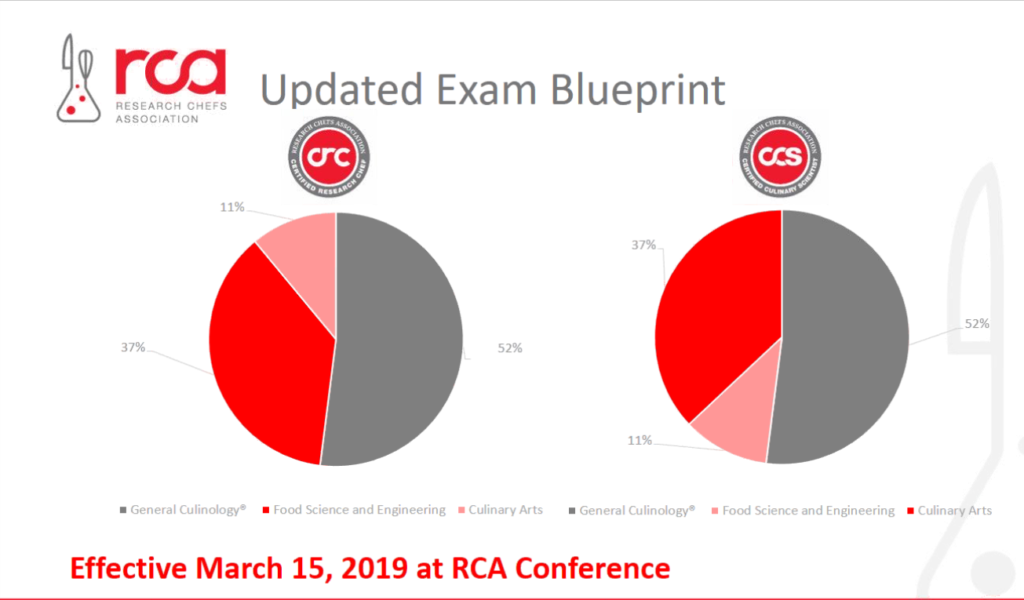
The Certified Culinary Scientist exam seems positioned for food scientists and product developers who do not come from the restaurant or food service world. Though the majority of the exam asks general culinology questions, additional questions are geared towards candidates who are seeking to prove their culinary experiences. The corresponding certification also applies: the Certified Research Chef exam tests candidates on their knowledge in food science rather than culinary arts. You can find out which exam works best for you at the RCA website.
I was fortunate at the time to be able to study about 4-5 hours every day (5-7am and 8-11pm) plus long weekends. I was living in Chico, an eleven-hour drive (straight through) home to Seattle, working as the product development manager at Lundberg Family Farms. My boss was supportive of my studying for it, and the company paid for my certification seat. I bought the books, completed the study guide (twice), and studied my heart out. It was a slog and really lonely. But, I passed well, and I have been proud to have the CCS credentials.
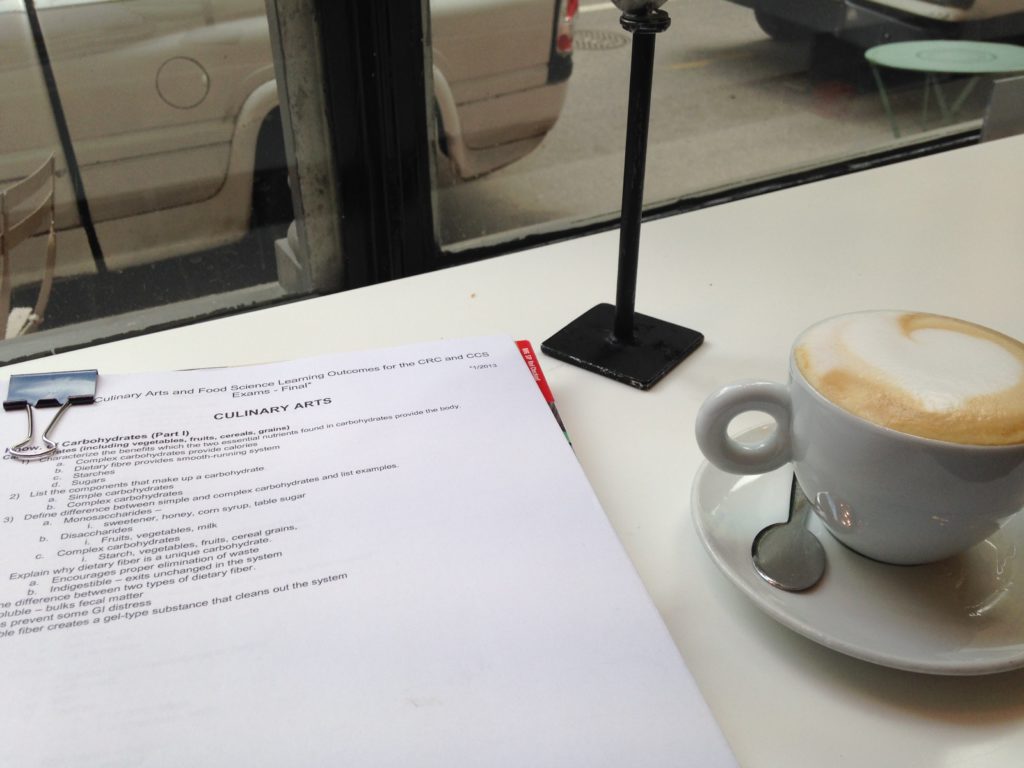
As my involvement at RCA has grown, I have gotten to know Jill Golden, a registered dietitian nutritionist by certification and an educator by vocation. Though she is officially retired, she still teaches an online culinology, food science and engineering, and culinary arts course for individuals who want to sit for the exam. The course is interactive with homework and reading assignments to be completed before the live discussions.
For Q1 2019, Jill and I hosted two Q&A sessions and email forum to encourage exam candidates to continue studying and to answer general questions about the content that could be tested. Jill’s expertise in the content and ease as a professor really helped to bolster the candidates, and made the studying process a lot less lonely.
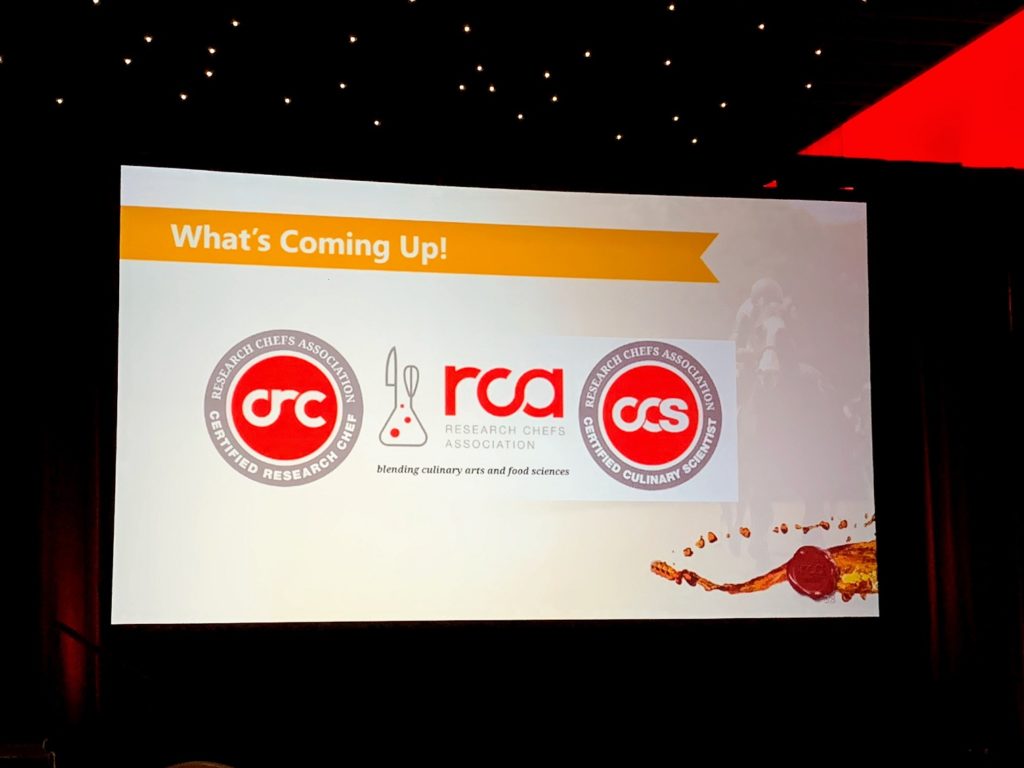
Her year-long class is starting again this Thursday, April 4. Since I’m renewing my certification this year, it makes sense to take the class and refresh my memory. I believe there is still room in the class, so if you’re considering the credential and are overwhelmed by the volume of content that the exam will test, this could be a great fit for you.
General Culinology starts April 4, 2019 and runs for 15 weeks covering the General Culinology Learning Objectives. This class is recommended for both CRC and CCS candidates.
Food Science and Engineering will start July 25, 2019 and run for 10 weeks. This class is recommended for CRC candidates since it covers the science learning objectives on the exam, but the class is open to all.
Culinary Arts starts January 16 and runs for 10 weeks. This class is recommended for CCS candidates since it covers the culinary learning objectives on the exam, but the class is open to all.
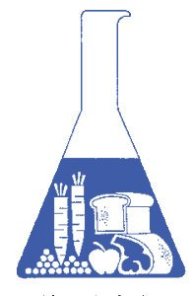
The RCA Certification exam has changed its format to be more focused on culinology and less on culinary or food science as majority topics, though each exam will have its own focus depending on the type being sought. They conducted a webinar differentiating the certifications and describing the new computer-based exam. You can get information about the exam here.

Hope to see you in Jill’s class next week!
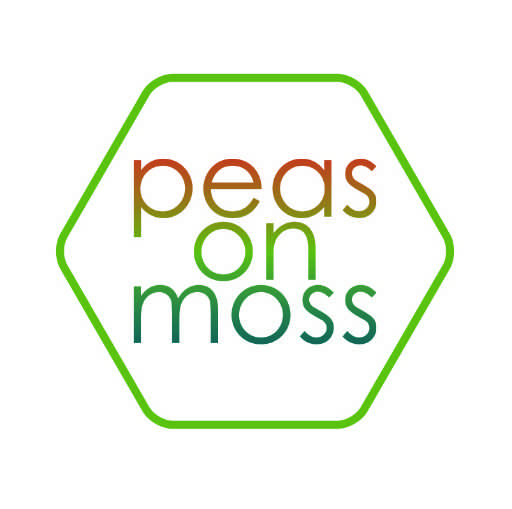
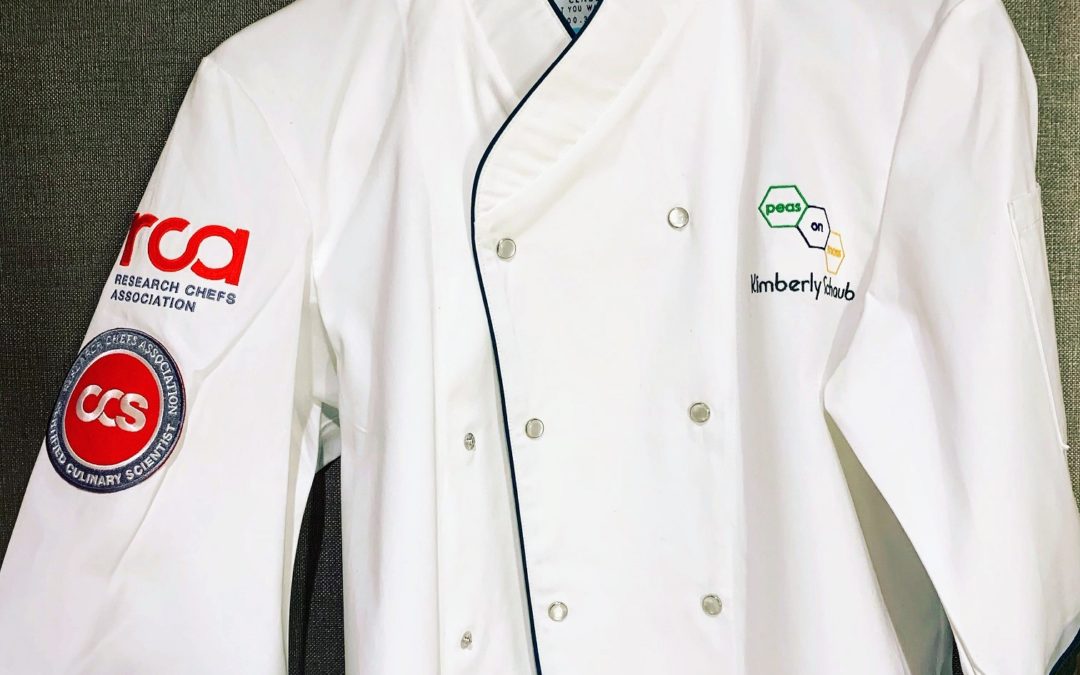
Recent Comments